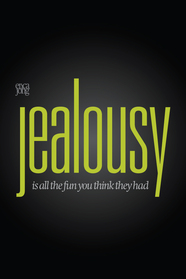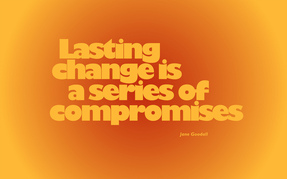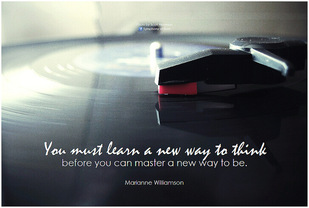| | Compromise. Defined as something intermediate between different things. It is an essential ingredient in making a relationship last. Sometimes settling a disagreement can be easy, like figuring out who will be picking the next vacation destination or buying a car that has both the important features you and your partner want. However there are other times when the disagreement is more difficult to resolve and the compromise is harder to swallow. In these times, what you did to compromise in the past may not work because the disagreement is most likely intertwined with your core values. We usually become more rigid to compromising when it comes to a disagreement involving our core values. So we either stalemate with our partner on this or we do our own thing. Neither are a good example of compromise and both can be harmful to our relationship. Just like resolving conflict brings us closer together, failing to resolve conflicts create distance between us. If you can recall a disagreement that did not get anywhere with your partner, think about how easy or hard it was to bring up the issue again. The more we disagree without resolving things, the harder it is to discuss future issues. So how can you get one step closer to compromise and problem solving a difficult or gridlocked issue? The answer is not easy and takes patience. But it will be worth it. There are several steps to take before getting to the step of compromising. Before you or your partner can be open to persuasion or compromise, it is important that you both express understanding of the others position. Until we feel heard and understood, it will be very hard to give up something to settle a disagreement (which is what we do when we compromise). Here are some tips that can ease you into a compromise. Start the conversation by stating what you feel and need in a positive way. We often go straight to telling our partner what needs to be done to resolve the conflict rather than expressing how the conflict affects us. Therefore we overlook the impact that the sequence in which we express ourselves has on resolving conflict. Starting with our feelings allows our partner to empathize with us and this contributes to a more open conversation. Leave judgment , blame, and criticism out of the conversation at all times. No one likes to feel blamed or judged, yet we easily spit it out with little regard for our partner's feelings when we disagree. The conversation can close up and turn our partner away from compromise when we engage in any of these things. Listen and validate your partner before responding. This is a respectful way to convey that we hear our partner and understand their point of view. It also ensures that we are on the same page and decreases the likelihood of miscommunication or shutting down. Make a list. One side of your list will identify areas of flexibility and another side will identify areas of core beliefs. It is important to stand by our beliefs, but not in a way that keeps us rigid. We can then compare this list with our partner's list, and find a common area of flexibility. Then a compromise is just around the corner. |
|
0 Comments
Whether public displays of a kiss is regarded or hidden in your culture, a kiss will always be a sign of affection. Whether it is exchanged between family members or lovers, a kiss is an unspoken message of care and adoration. A kiss is the ultimate universal language. No wonder it has so many benefits to our mental and physical health. Please keep in mind that I'm not a researcher in kissing nor do I dare to say I'm an expert at this. More importantly, I'd like to share about the importance of kissing as it relates to intimacy in a relationship.
So here comes the boring science stuff, or fun stuff if you like science. I won't get into "why we kiss", because that could take a long time and it's really not that interesting. What is interesting though is the "high" we experience when we are having a good long kiss with someone. Yep, kissing is like taking a drug. Our lips are rich with nerves and these nerves send information to our brain when we kiss. The sensation of kissing sends a message to the pleasure center in our brain, which then signals a release of feel good chemicals like dopamine and endorphins. Hence we feel euphoria in a really good kiss. Over a period of time, kissing actually triggers our body to produce less cortisol, which is the body's stress hormone. So kissing boosts feel good chemicals and decreases stress; two things that helps us feel less depressed/anxious/angry. You can see why this can have a positive long term effect on our physical and mental health. In a romantic relationship, kissing is a very intimate act. Just think about it, you need to feel trust and comfortable enough with someone to bring them that close to your face. When you are that close, you can hear, smell and see every little thing you wouldn't have noticed three feet away. And of course, you also put yourself in that vulnerable spot of being smelt and judged from a distance of three inches. Then finally, when you do kiss, you taste that person. What is more intimate than tasting someone? Although I don't have information about whether or not a relationship/marriage has ended over bad kissing or lack of kissing, I can say that kissing is good for a relationship. Not necessarily because kissing is magical, but because of what it represents. A kiss is an expression of love and affection. Its presence expresses the continued love and affection we have for our partner, and I can say that the continued expression of love and affection has a tremendous effect on a long lasting relationship. So ultimately, if there is a decrease in kissing through the course of your relationship, then find other ways to express love and affection for your partner (ie. leave the toilet seat up, text a love message, encourage his/her dreams). Find what suits you. Just keep in mind that kissing is a very effective way of showing love and affection as expressed above. However, depending on your culture, age, or preference, you may or may not enjoy kissing at all. But clearly, if you do enjoy it like millions of people do, then you owe it to your partner, your physical and mental health to maintain it in your relationship.  "It is not love that is blind, but jealousy" Lawrence Durrell. Jealousy can make good people do awful things and yet it is also part of our survival. We can't live with or without this strongly complex emotion. So let's start with some good ways jealousy serves us. To a certain degree, jealousy is one reason humans do engage in monogamous relationships (even if these are serial monogamous relationships). When we ache in seeing our partner with someone else, we will do more to keep and protect the relationship. This then translates to more security for the family unit (including children from the relationship). But of course, anything in excess can become a bad thing. Jealousy in excess is especially poisonous to a relationship. It can become energy that feeds into our inner most dark thoughts and give rise to a hidden beast. Jealousy can destroy us and our relationship if it takes over our thoughts and feelings. The good thing is that we can keep this green eyed monster within us in check. Instead of looking at jealousy as the problem, let's look at our reactions to jealous feelings as the beast for us to tame. Our feelings are what they are. They may not always be based on facts, but they are real. Our feelings don't hurt anyone, as long as we don't act impulsively or irrationally on them. So here is where we can intervene. We can check ourselves when we are feeling jealous by asking what are the facts and what is our imagination. Many times our jealousy is connected to the imaginary thoughts we think our partner has (ie. he thinks she's sexier than me) or the imaginary fun we assume our partner is having without us (ie. she late because she's out having drinks with other guys). Our imagination then makes the situation appear and feel worse than it really is. This imagination we have then impacts our relationship when believe it to be true and it leads us to be suspicious or accusatory of our partner. And of course, you can imagine how it can snow ball into something bigger as a result. We can also check our jealousy by asking what personal insecurity the jealousy is triggering in us. Many times our jealous reactions have more to do with our feelings of inadequacy (ie. I'm not good enough, I'm not sexy enough, or it's only a matter of time before someone leaves me) rather than the reality of the situation. When our feelings of inadequacy are triggered, we tend to inflate other people's qualities and this makes us feel inferior. It's very difficult to be objective and rational when we are feeling inadequate, and often times we go into defense mode. We seek to protect our self esteem by blaming our partner (ie. you are always doing things behind my back or you're the reason I can't trust you) or by trying to control our partner. Unfortunately, jealousy often does not end very well when it gets to this point. Love is always stronger than jealousy, yet jealousy can so easily consume a relationship. Given that there's no evidence of infidelity in the relationship, it's important to remember that jealousy only grows when we feed into it. The new year can bring on many goals for a new start, and one of these things might include your relationship. Feeling stuck or stagnate in a relationship is normal and very common. It's never the deciding factor for the relationship, but it does suggest that a change may be on the horizon. I don't ever encourage couples to break up or stay together against their wishes, and I never recommend whether a couple should stay together or break up either. This is a very personal choice. However, I do encourage reflecting on your relationship with the right questions in mind in order to decide whether you want to stick with your relationship through the long haul.
1. How do we communicate? Yes, communication is always a predictor of relationship longevity. However it's not necessarily about having verbal communication or long romantic talks, because many couples stay together a very long time even without much talking. In this question, focus on how things are communicated. If things are communicated after the fact, without regard to your feelings, or in a passive aggressive way, then these are signs that you or your partner may not be entirely honest about your true intentions. This makes it more difficult in the long run to communicate honestly and openly about issues that may come up. 2. How do we make up? Conflict does not progress a relationship unless there is healthy reconciliation afterwards. So take a look at how you resolve things. If things are quietly forgotten, one person always assumes responsibility, or anger simmers slowly, then these are signs that you are engaging in a cycle of unhealthy conflict resolution. Conflict will continue to recycle in this way and negatively impact the relationship in the long term. 3. What life goals do we share? Perhaps you're not ready to marry your partner at this time. No worries. This question still applies. Your life goals do not necessarily have to be about marriage, the future, or existential in nature at this point. But sharing life goals does signify having good compatibility in a relationship and it's more likely that having some similar life goals will help your relationship stay on the same path. The more your life goals differ, the more tension there will be. 4. What kind of family support do we have? Again, it's not so important that your family loves your partner but it is important that you both still remain strongly supported by your families. (Family can also refer to close friends, whom you consider family). Yes, this is confusing. So look at it this way. Even if your family doesn't love or adore your partner, if they are committed to you then they will accept your relationship. Same goes for your partner. However, if you do not have family support or will be sacrificing family support because of this relationship, it will be that much harder for you. Especially because you will have times when you need to depend on someone other than your partner. Unfortunately your relationship will take a hard blow if there aren't others by your side. If there were a crystal ball that could tell us which relationships to stick with and which ones to run from, then we would have less heartache. We would also have less spontaneity and self discovery. So I believe it's not necessarily about knowing whether this is the right relationship or not. Rather it's about knowing ourselves well enough to make that call. As you embark on this year, I hope you will find a renewed commitment to your relationship or the strength to let it go. |
Archives
February 2018
Categories |



 RSS Feed
RSS Feed
